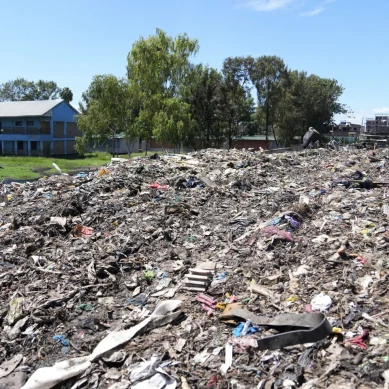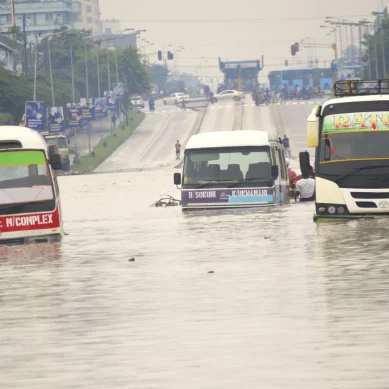The decline of coups and conflicts across Africa in the early 2000s are partly indebted to regional bodies being willing to uphold these norms. The recent rise is in no small part because leaders in many African countries have lacked the political will to fully commit to upholding them.
There exists legitimate concern among researchers over whether peacekeeping can be effective in the absence of political settlements or peace agreements. Nevertheless, the African Union’s (AU) willingness to challenge international peacekeeping doctrine has enabled regional actors to adapt to 21st century armed conflict in ways the UN has not. Through rapid response capabilities, doctrinal innovation, improved regional coordination, and by acting to uphold continent-wide non-indifference norms, African-led peace operations are supplanting international ones.
Though African-led operations have shown great promise in addressing Africa’s security challenges, they are not without shortcomings.
Regionally led peace operations possess limited operational and expeditionary capabilities. The largest African-led peace operations have been almost entirely dependent on external donors such as the European Union, the United States, and the United Nations, which collectively spend billions of dollars a year on multilateral peace operations.
Through the operationalisation of the African Standby Forces and a Peace Fund supported by a 0.2-per cent levy on imports, the African Union has long cultivated capabilities of its own.
These efforts have been only partially successful. The Standby Forces have progressed but are not yet fully operational. The Peace Fund has so far raised around $250 million, short of its $400 million goal, which itself is barely enough to fund even a modest-sized expeditionary deployment for one year.
In addition, the military components of African-led peace operations need to be better aligned with civilian- and locally led efforts to manage conflict. Most African-led peace operations have focused on the deployment of military force, with limited coherence or integration with civilian ministries, development agencies, or locally driven conflict prevention and mitigation efforts. At times, African peacekeepers have displayed a lack of professionalism that has implicated them in corruption scandals, sexual abuse, and extrajudicial killings of civilians.
In an age of complex insurgencies that take advantage of local grievances and are adept at exploiting heavy-handed state responses, these shortcomings are particularly problematic. Some African-led peace operations, such as the MNJTF, have achieved impact over time by improving coordination with external donors, local leaders, and regional entities (such as the Lake Chad Basin Commission) to facilitate humanitarian assistance, the return of refugees, and stabilization programs. Others, such as the G5 Sahel Joint Force, have been focused mainly on countering violent extremism and have been less integrated with stabilization efforts led by the Sahel Alliance, the UN, bilateral partners, and dozens of NGOs. This remains a major shortcoming of attempts by various regional actors to stabilize the Sahel.
Finally, the African-led peace operations often fail to uphold the AU founding principle of non-indifference to leaders who, through war crimes, genocides, or unconstitutional seizures of power, abuse their citizens.
A high-water mark of frustration for many came in 2015, when the African Union Peace and Security Council failed to endorse a regional intervention in the context of a crisis precipitated by Burundian President Pierre Nkurunziza’s decision to seek a third term in office. Similarly, the absence of any major African-led peace operation to address massive conflicts in Ethiopia and Sudan illustrates the hard reality of the AU’s limited intervention capabilities. After failing to take decisive action against coups in Mali (2020 and 2021) and Burkina Faso (both in 2022), ECOWAS’s threatened intervention into Niger in response to the presidential guard’s seizure of power will provide a critical test of how willing—and capable—regional leaders are to curb the wave of coups and coup attempts that have affected West Africa.
African-led peace operations are growing ever-more crucial to addressing the continent’s security challenges. It is no stretch to argue that future peace and security on the continent depends upon the continued growth and evolution of African-owned modalities of conflict prevention and resolution. To achieve their full potential, the AU, RECs, and member states must reinforce the successes and address the shortcomings of African-led peace operations.
The AU and RECs should adopt a standard, institutionalized playbook for responding to shared cross-border security challenges. The AU, working in close coordination with the RECs, could provide more formal strategic guidance and operationalize the coordination mechanisms that have been developed through the regional security initiatives and integrate them into the existing African Standby Forces. This could include support to ongoing efforts to build confidence across regional security forces, establishing fusion centres to share intelligence, and mechanisms to command, conduct, and operationalize joint operations targeting specific groups. AU-led efforts could be particularly useful in cases where the threats span RECs.
Second, the AU and RECs need to do a better job of adopting integrated, holistic approaches to conflict management. This will require increased efforts to train African troops who serve in African-led peace operations on critical issues such as civilian harm mitigation, respect for the laws of armed conflict, and human rights. It will also require ensuring that the military components of African-led peace operations are integrated into efforts by civilian agencies, local leaders, humanitarian actors and the international community to address the underlying causes of conflict through development assistance, humanitarian relief, and locally led peace initiatives. Here, the RECs and ad-hoc security initiatives could afford to do a better job of cooperating with the AU, which has established guidelines on civilian protection and harm mitigation.
Finally, African-led peace operations require more resources and sustainable financing mechanisms if they ever are to obtain the muscle they truly need to grapple with Africa’s most significant security threats. Over the long term, this will require greater commitment from African states themselves to ensure that the AU meets its funding targets. In the near term, however, enabling the UN to use its peacekeeping funds to support African-led peace operations could provide the global peacekeeping enterprise with a much-needed shot in the arm.
African-led peace operations have demonstrated they can be relevant and adaptable to many of Africa’s security challenges. Continued innovation in African led peace operations will be crucial to improving their effectiveness in addressing Africa’s most complex armed conflicts.
- A Tell / ISS/ Defenceweb report











